Follow the Science KItchen on social media
WELCOME TO THE SCIENCE KITCHEN!
The UW Department of Physics and Astronomy and Wyoming NASA Space Grant, along with Wyoming INBRE have launched the Science Kitchen! In the Science Kitchen K-12 students and teachers can build, create, and explore scientific ideas through interactive experiments and group work. The Science Kitchen is a center for introducing students to physical sciences, natural sciences and STEM (Science, Technology, Engineering, Mathematics) in general, all through hands-on exploration and problem solving.
General Requests for Visits – Please E-mail: [email protected]
We also work with UW Admissions to schedule group activities with the UW Planetarium, Geological Museum, Innovation Wyrkshop, 3D CAVE, Coe Makerspace, Williams Conservatory, etc. If you are interested in this type of visit, please fill out the Admissions survey HERE.
What can you do with the Science Kitchen?
On-Campus Activities
School Visits
Science Kitchen Events
Grab-n-Go Kits
Bring your students to campus for a hands-on activity in the Science Kitchen! These visits can be coordinated with other groups on campus (such as the UW Planetarium) or UW Geological Museum.
The Science Kitchen has limited capacity to visit classrooms to do in-person activities! Please email [email protected] for more information!
Throughout the year, the Science Kitchen may sponsor events open to the public, such as STEM Saturdays, open houses, STEAM camps etc. Check back frequently for updated information!
Started during the pandemic, Grab-n-Go kits are free take-home activities designed to inspire STEM enthusiasm in students of all ages!
As we design and share more kits, information on reserving and picking up kits can be found here.
Example Science Kitchen Activities
more coming soon!
States of Matter with Dry Ice
During this activity, students will get to explore the chemistry of dry ice – what is it? Does it exist as a liquid? What happens when we add hot or cold water to the dry ice? What hap-pens when we add soap to dry ice? Hand sanitizer? Food coloring? Can we blow up a balloon using dry ice?



View the activity plan here.
Exploring Electricity
Explore the basic principals of batteries and electricity in this hands-on activity that ends with students building their own lightbulb out of pennies.



View the activity plan here!
Bernoulli's Principle
Explore the basics of Bernoulli’s Principle where fast-moving air creates low pressure with levitating results!
View the activity plan here!
Straw Rockets


Liquid Nitrogen
Explore states and properties of matter, chemical reactions, and more in this ‘cool’ demo!

View the activity plan here!
Radioactivity and Radioactive Decay
Explore the concept of radioactive decay using M&Ms, emphasizing procedure, data collection, and graphing. Students experience the phenomenon of radioactive decay by building and using a mini cloud chamber. They observe tracks created in a cloud chamber by ionizing radiation as it passes through a cooled, supersaturated alcohol vapor.

View the activity plans below:
Radioactive Decay
Cloud Chambers
Glow Sticks – An Introduction to the Scientific Process


View the activity plan here.
Ecosystem Jenga
Created by Nicole Carter and Melanie LaCava.
Students learn about the complexity of food webs and ecosystems while playing a twist on the game Jenga.

View the game rules here!
Lesson HighlightS!

The lesson
Meet Lindsey
Palm Oil and its Impacts (7th graders, 50 minutes)
In this activity, students explore how our choices at the grocery store impact animals in Indonesia and Malaysia like orangutans! Students are asked to download the Cheyenne Mountain Zoo palm oil app and scan different products to determine if they use sustainable palm oil or not.
This lesson was created by Lindsey Mitchell.
Lindsey Mitchell is a sophomore at the University of Wyoming double majoring in Wildlife biology and management along with Environment and Natural resources, with a minor in sustainability. She is from Colorado Springs, Colorado and volunteered at the Cheyenne Mountain Zoo for over eight years. Throughout her time volunteering she started reaching out to schools and educating the community on different environmental issue, specifically the palm oil crisis.
Interested in hosting Lindsey and this lesson in your classroom? Contact us at [email protected] today!
Additional Educator Resources
coming soon!
INTERESTED IN HELPING WITH STEM OUTREACH?
Sign-up to Volunteer with the Science Kitchen: VOLUNTEER SURVEY LINK

Meet the Science Kitchen Directors
 Science Kitchen Co-Director Megan Candelaria is a life-long Wyoming resident who grew up in Sundance., the small-town which gave Henry Longbaugh the moniker “The Sundance Kid”. She received a BS in mathematics and physics (2006), and a Masters in mathematics (2009). Megan loves STEM (science, technology, engineering, and math) outreach and recently took a job with the Wyoming NASA Space Grant Consortium coordinating STEM outreach efforts in the state of Wyoming. Megan believes that those who are passionate about a subject are best able to pass on not only an understanding of the subject but also to share the joy they find within the subject, and her work with various STEM outreach groups has demonstrated this time and again. Suddenly topics the students have only read about in their textbooks begin to come to life as STEM researchers share their expertise – and excitement – about their area of study. Inspiring science outreach/education is about the sharing of genuine passion and excitement for a subject, through authentic, hands-on experiences that expose learners to the subject in a way that makes them excited to learn more!
Science Kitchen Co-Director Megan Candelaria is a life-long Wyoming resident who grew up in Sundance., the small-town which gave Henry Longbaugh the moniker “The Sundance Kid”. She received a BS in mathematics and physics (2006), and a Masters in mathematics (2009). Megan loves STEM (science, technology, engineering, and math) outreach and recently took a job with the Wyoming NASA Space Grant Consortium coordinating STEM outreach efforts in the state of Wyoming. Megan believes that those who are passionate about a subject are best able to pass on not only an understanding of the subject but also to share the joy they find within the subject, and her work with various STEM outreach groups has demonstrated this time and again. Suddenly topics the students have only read about in their textbooks begin to come to life as STEM researchers share their expertise – and excitement – about their area of study. Inspiring science outreach/education is about the sharing of genuine passion and excitement for a subject, through authentic, hands-on experiences that expose learners to the subject in a way that makes them excited to learn more!
Information about Science Kitchen Co-Director Annie Bergman coming soon!








